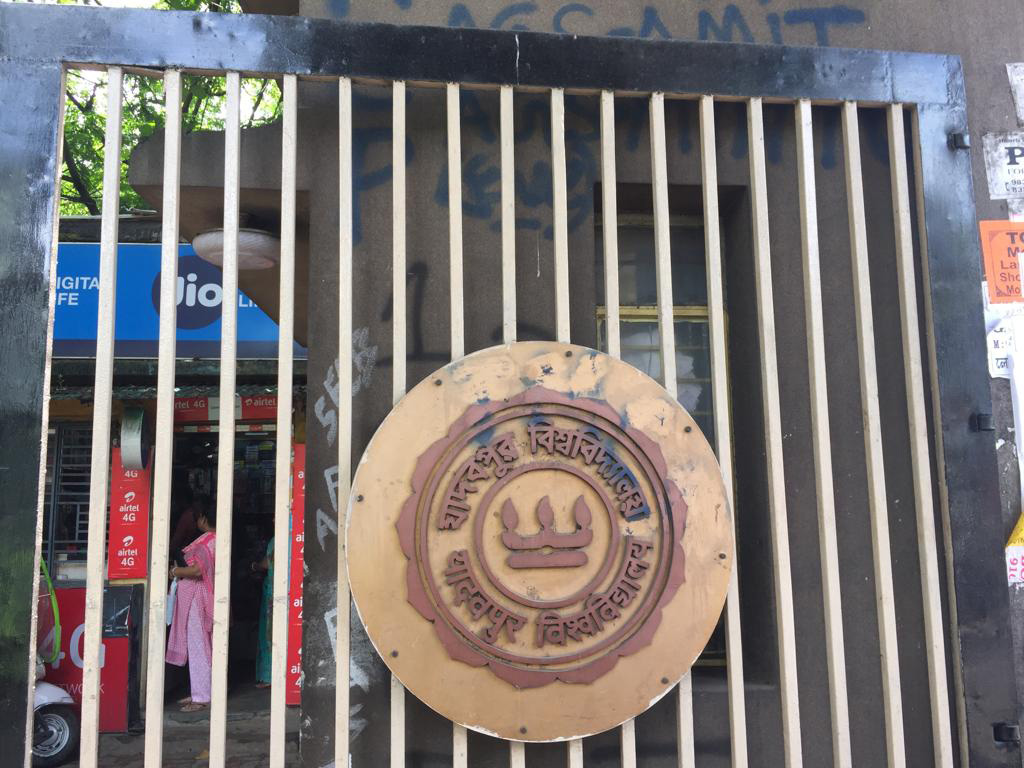Jadavpur University should give equal weightage to the entrance test scores and the plus-II board marks for admission to six undergraduate courses in humanities, a committee set up to review the admission modalities has recommended.
The six subjects are history, English, Bengali, political science, comparative literature and philosophy.
The university had last year introduced the system of giving equal weightage to the admission test scores and the plus-II marks for admission.
The two-member committee was initially set up to look into the admission modalities of the undergraduate course in history after some discrepancies had come to light last August. The panel’s ambit was later extended to the five other subjects.
The panel has stated in its report, which was tabled at a meeting of the university’s executive council on March 18: “Considering the special need of any department, if the admission committee of any faculty decides to select candidates through admission test, then the marks awarded in such admission test should not be the sole criterion since, in our opinion, marks secured in the board examinations cannot be totally ignored.
“We, therefore, suggest that if the students are selected through admission test in any arts department, then only 50 per cent weightage should be given on the marks awarded in the admission test and the remaining 50 per cent should be given on marks awarded in the concerned board examination….”
The executive council, the highest decision-making body of the university, had in June last year decided to adopt the 50:50 formula amid a siege by students following speculations that the system of holding admission tests for undergraduate courses in humanities would be scrapped.
Education minister Partha Chatterjee had earlier suggested that JU should follow the example of other universities and admit students to its humanities courses based entirely on their plus-II marks.
But on July 4, 2018, the council scrapped the decision it had taken the previous month and announced that the Plus-II marks would be the sole basis for enrolling students in the undergraduate courses in humanities.
The departments, led by English, joined hands to protest and forced the university to go ahead with equal weightage formula.

The Telegraph
After allegations of faulty evaluation of history admission test scripts surfaced in August, and the validity of the admission tests was questioned, the university set up the two-member committee to review the admission procedure.
The committee has stated: “There is no doubt that the university did not face any problem for selecting candidates upon conducting admission test in five departments — English, Bengali, political science, comparative literature and philosophy. Only while conducting admission test in history problem arose in evaluation of scripts. We have already suggested the mechanism for evaluating the scripts in case of test in history.”
Last year, 55 students who had scored 90 per cent or more in the Plus-II exams were awarded 10 or less out of 100 in the admission test for the undergraduate course in history.
The university had ordered a second assessment, following which as many as 15 new names figured among the first 70 on the merit list.
The “mechanism” the two-member panel has referred to in the report involved splitting the teachers in the history department into two groups. Each script will be reviewed by two teachers from each group “to avert discrepancies”.
If the difference in the marks awarded by the two examiners is more than 10, the head of the department will get the script reviewed by a third teacher.
The third examiner’s decision will be final, the committee has recommended.
The panel has also suggested that the admission committee of the faculty council decide the selection norms and advise the executive council on the matter.
JU vice-chancellor Suranjan Das said the report would be discussed by the council at its next meeting.
“The report vindicates our stand that there is merit in continuing with the admission test,” said Partha Ray, a JU teacher.











